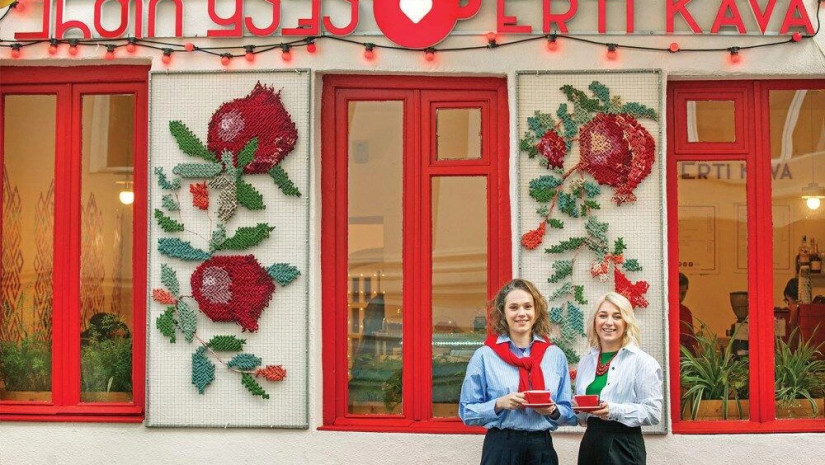The Georgian coffee house brand "Erti Kava" is planning to open a training center for coffee processing and training of baristas in one space in Tbilisi.
In an interview with Forbes Georgia, the founders of the company, Ksenia Markovskaya and Tanya Merzla, note that the first branch of the coffee house "Erti Kava" was opened in Mestia in 2017. The partners started raising awareness of Specialty coffee by investing an initial USD 10,000 in the mountainous region of Georgia.
Today, "Erti Kava" has five branches in Mestia, Tbilisi and Batumi, with a turnover of GEL 3.5 million and at least 150,000 cups of coffee sold per year in each branch. According to the founders, sales achieve the maximum per square meter in each facility, according to the world standard. Business partners continue to work on the development of the company and the recognition of Specialty coffee in the Georgian market.
"In the local market, one flagship branch will be added to our network this year, which will combine a coffee roasting plant and a staff training center. The project worth USD 1 million is planned to be implemented in Tbilisi and it will be located on 1,000 sq/m. Now we are in the process of selecting a place. In this branch, we will offer our customers our specialty coffee and healthy breakfast, which the company created a few years ago by inviting a chef from Ukraine, three years later we will further refine the menu by inviting the same chef. We can say that we have made a great contribution to the development of healthy breakfast culture in Georgia.
The total production capacity of coffee roasting will be 15-20 tons per month, part of which will be supplied to the local market, and the remaining part will be exported.
As for the training center, we will be able to train professional baristas for the company and the market, and in this regard, we will fill the shortage of staff", says Ksenia Markovskaya.











